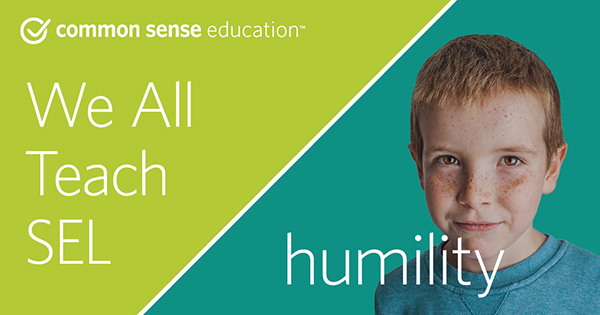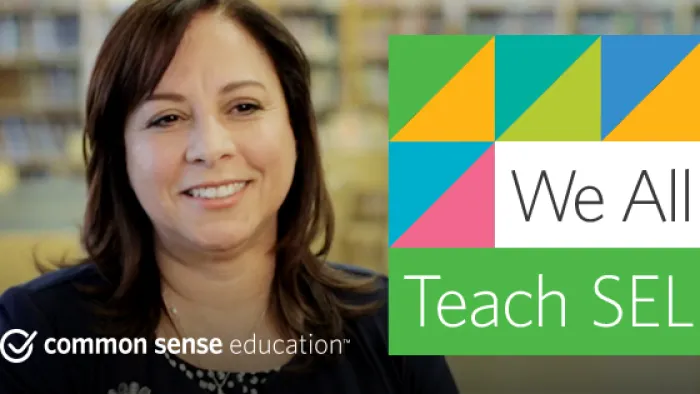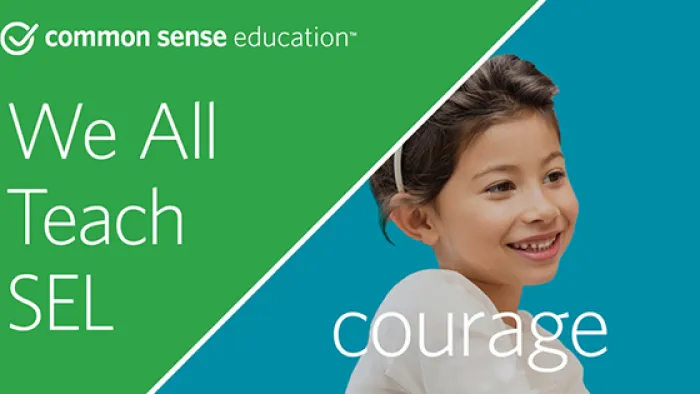Resources to integrate humility into every classroom, every day.

Building SEL (social and emotional learning) skills such as humility requires face-to-face interactions, meaningful discussion, and reflection. Edtech is no complete substitute for that, but there are tools that can supplement the development of character in the classroom and at home. Humility is not regarding yourself as more special or better than others.
While some tools focus specifically on humility, the websites and apps that you use daily (in all subjects) can be employed to promote humbleness, too. You don't have to stop using the tools you love or toss out your lesson or curricular plans to start developing SEL. Below we have included some tips, tools, and actionable ideas for seamlessly integrating humility and life-skills-building into your content classroom.
Why Humility?
Humility is not necessarily about modesty or pretending to be less than you are. In fact, people who are humble often have a high sense of self-worth; it's just that they can recognize their own strengths and limitations. Research about humility also suggests a strong connection between being humble and being generous. Though it might seem as if humility is without a doubt linked to prosocial behavior, it is, in fact, a divided issue for many people who may have reasons to find virtue in arrogance. For kids, however, who are growing up in a media-driven world that often rewards narcissism, humility has become a way to stand up and stand out, like this valedictorian student who used a secret Instagram profile to sing the praises of his peers. Kids like this who both possess confidence and feel gratitude are more likely to work toward the welfare of others. They can better keep themselves in perspective and value the contributions of others to their lives -- a necessity when fostering truly collaborative, forward-thinking cultures and classrooms.
Take Action
- Try to show students where their value and confidence come from: Teach a lesson around privilege and entitlement.
- Encourage a classroom culture where it's OK to fail and students are taught to admit and apologize for mistakes.
- Organize time for students to set personal goals that reflect an interest in the benefit and betterment of the community.
- Make sure the technology you use doesn't take the place of, but instead supplements, face-to-face interaction.
- Visit our SEL in Digital Life Resource Center for quick activities by grade, movie guides, and more!
- Visit some other excellent SEL resources, including CASEL, Character Lab, Edutopia, and Ashoka.
- Think about the digital tools you're already using in the classroom. Can you find a creative way to use them to model humility? Check out our suggestions below!
Directly Target Humility
See our Emotional Intelligence Apps and Games list for more humility-focused tools.

Daniel Tiger's Grr-ific Feelings
Kids take pictures of their faces and then match the facial expressions to Daniel's, demonstrating that we all have similar emotions. A drawing tool in the app lets kids reflect on how their expressions show people what's happening on the inside.

Mood Meter
Kids plot their moods on a color-coded chart, describe what caused a mood, and then browse strategies to change it. As students track their moods over time, they will begin to acknowledge their limitations and reflect on who they are intrinsically.
Promote Humility in All Subjects
For ELA classrooms

Scribble
Scribble is an easy way for young kids to create their own online books. Students can use the camera to put their own face on a character and then tell a story about meeting one of their heroes, describing the character traits they find admirable.

StoryCorps
Have students listen to one of the 50,000 interviews on the site, from themes such as Angels & Mentors. Students will hear how others express gratitude for people in their lives. They can then record their own story about someone who has helped them.
For math classrooms

Prodigy
In the Prodigy multiplayer world, students can meet up with classmates and challenge them to a math battle. Have students practice praising their peers' successes, and use the leaderboard to celebrate individual improvements as a class.

Geogebra
Get kids thinking about any entitlements or privilege they may have. Create or modify a simulation where students enter data into a spreadsheet, such as the income gap in schools. Then use sliders to analyze the data by manipulating variables.
For science classrooms

Ready Jet Go! Space Explorer
Take students outside and point their iPads up to the sky. Kids will see what the stars look like beyond the clouds in real time. Students can make predictions about the size of the universe, as well as reflect on our place and purpose in it.

Universal Zoom
From the subatomic particle to the solar system, students can measure differences in sizes of objects they can't directly observe. Students can compare a human to another object, noting how our size may limit or enhance our abilities.
For social studies classrooms

Google Earth
Have students create a tour exploring historical imagery to recognize and highlight the contributions of individuals and cultures over time, emphasizing that we all have a part to play in global progress. Also, see Google Earth VR.

Big History Project
This site looks at history from a broad lens and ultimately asks questions such as "Why are we here?" PBL activities and curriculum get students questioning their existence and predicting the next pivotal moment in Earth's future.
For all classrooms

Sutori
Use this or any mind-mapping tool to get kids thinking about where they belong in the timeline of their family's history. Have students create a family tree and see if they can pinpoint any positive traits they may have gotten from a past relative.
Peergrade
Use a site like Peergrade to promote honest student feedback. Instruct students to highlight the strengths and gaps in each other's work. Students can analyze their own results and pick areas they can focus on to improve.
Engage Families
- Explore our lists Movies That Promote Humility and TV That Promotes Humility to share with parents.
- Parent questions? Point them to our Character Strengths and Life Skills page for answers.

We All Teach SEL: Inspiring Activities for Every Classroom
Get more SEL tips, tools, and teaching strategies.











